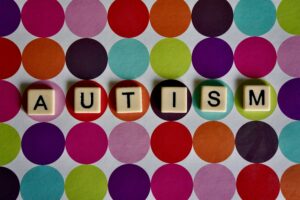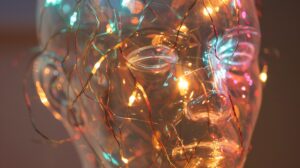Introduction: Beyond the Stereotypes
Schizophrenia is not a single-note diagnosis but a symphony of neurobiological complexities that challenge our understanding of human consciousness. Far from the sensationalized portrayals in media, this chronic mental health disorder represents a nuanced interplay of genetic, environmental, and neurochemical factors that demand both scientific rigor and profound human compassion.
Understanding Schizophrenia: The Diagnostic Roadmap
DSM-5 Diagnostic Criteria
To receive a schizophrenia diagnosis, an individual must present:
- Two or more of the following, each present for a significant portion of time during a one-month period:
- Delusions
- Hallucinations
- Disorganized speech
- Grossly disorganized or catatonic behavior
- Negative symptoms (diminished emotional expression)
- Level of Functioning: Marked decline in work, interpersonal relations, or self-care.
- Duration: Continuous signs of disturbance persist for at least six months, with active symptoms present for at least one month.
Exclusion Criteria
- Symptoms not attributable to substance use or another medical condition.
- Not better explained by schizoaffective disorder, bipolar disorder, or depressive disorder with psychotic features.
While the exact cause of schizophrenia remains unclear, it is believed to result from a combination of genetic, biochemical, and environmental influences. Individuals with a family history of schizophrenia are at higher risk, but it can also develop in those without any known genetic predisposition.
Joyspring Health & Recovery. Nurturing Joy. Inspiring Resilience.
Your partner in mental wellness, supporting you every step of the way toward a more fulfilling life.
Neurobiological Insights: The Brain’s Complex Landscape
Neurotransmitter Dysregulation
Schizophrenia isn’t just “in the head” – it’s in the neurochemical wiring. Key neurobiological features include:
- Dopamine Hypothesis: Hyperactive dopaminergic transmission in mesolimbic pathways contributes to positive symptoms, while hypoactivity in mesocortical pathways may underlie cognitive and negative symptoms.
- Glutamate Dysfunction: Hypofunction of NMDA receptors, suggesting an excitatory/inhibitory imbalance in cortical circuits.
- Neuroinflammation: Elevated pro-inflammatory cytokines have been implicated in disease progression.
- Structural Variations: Reduced gray matter volume, altered connectivity in prefrontal and temporal regions, and enlarged ventricles—highlighting the neurodevelopmental aspect of schizophrenia.
Genetic Architecture
While no single gene “causes” schizophrenia, research indicates a polygenic risk model where multiple genetic variations contribute to vulnerability. Key findings include:
- Polygenic risk scores that estimate individual susceptibility.
- Copy number variations (CNVs) impacting synaptic plasticity.
- Epigenetic modifications influenced by environmental factors such as early-life stress and substance use.
Clinical Manifestations: A Spectrum of Experiences
Symptom Categories
Schizophrenia presents like a neurological jazz improvisation – unpredictable and deeply personal. It typically emerges in late adolescence or early adulthood and is characterized by disturbances in thought, perception, emotions, and behavior. The symptoms are generally categorized into three types:
- Positive Symptoms: The Dramatic Performers
- Hallucinations (auditory being the most common)
- Delusions (persecutory, referential, grandiose)
- Disorganized thoughts and speech
- Negative Symptoms: The Silent Underminers
- Emotional flattening
- Anhedonia
- Social withdrawal
- Reduced motivation (avolition)
- Cognitive Symptoms: The Hidden Challenges
- Impaired working memory
- Difficulty with executive functioning (planning, problem-solving)
- Attention deficits
Treatment: A Multimodal Approach
Pharmacological Interventions
Antipsychotics form the cornerstone of treatment, targeting neurochemical imbalances—particularly dopamine—to alleviate symptoms. Commonly prescribed second-generation (atypical) antipsychotics include:
- Risperidone
- Olanzapine
- Aripiprazole
- Quetiapine
- Clozapine (for treatment-resistant cases)
Second-generation antipsychotics (SGAs) are effective in reducing positive symptoms of psychosis. However, they necessitate careful monitoring due to potential side effects, notably metabolic syndrome and sedation. While SGAs generally exhibit fewer extrapyramidal symptoms (EPS) than first-generation antipsychotics (FGAs), they carry a higher risk of metabolic complications. Open communication with healthcare providers regarding any side effects is crucial. Dosage adjustments or medication changes can significantly improve patient comfort and treatment adherence.
At Joyspring Health & Recovery, we work closely with individuals experiencing symptoms of schizophrenia to determine the most effective medication and dosage, while monitoring potential side effects such as weight gain, fatigue, or movement disorders. These medications are often critical in reducing hallucinations and delusional thinking, allowing individuals to regain a sense of clarity and control.
Combating Stigma and Fostering Awareness
Stigma poses a significant obstacle to effective schizophrenia care. Misconceptions, like the false association of violence or incapacity, result in social isolation and reluctance to seek treatment.
It’s crucial to understand that individuals with schizophrenia are statistically more likely to experience violence than to perpetrate it.
To dismantle stigma and cultivate inclusive communities, we must prioritize open dialogue, disseminate accurate information, and share personal experiences
Psychosocial and Supportive Therapies
Therapy complements medication by helping individuals build coping strategies, understand their condition, and manage stressors that could trigger relapse. Cognitive Behavioral Therapy (CBT) is particularly effective in addressing thought distortions, emotional regulation, and everyday functioning. Comprehensive treatment integrates:
- Social Skills Training – Enhances interpersonal and vocational abilities.
- Family Psychoeducation – Supports caregivers in understanding and managing the condition.
- Community-Based Rehabilitation – Encourages social reintegration and independence.
The Human Element: Clinical Case Studies
Case Study: The Journey of Daniel
Daniel, a 25-year-old engineering student, had always been known for his intellect and curiosity. However, in his early twenties, subtle changes began appearing. He started believing that professors were inserting hidden messages into lectures and that strangers on the subway were conspiring against him. Conversations became disorganized, and he withdrew from friends and family.
His first hospitalization followed a psychotic episode where he attempted to “decode” messages in street signs. The schizophrenia diagnosis was a shock to Daniel and his family. Initially resistant to treatment, he struggled with medication adherence due to side effects. However, through a combination of medication adjustments, CBT, and peer support groups, Daniel found a path forward. He now engages in part-time coursework, continues therapy, and is working towards his goal of becoming an engineer. His journey exemplifies that with the right support, schizophrenia does not define one’s potential.
Case Study: The Journey of Mike
Mike, a 21-year-old aspiring artist, experienced a significant change in behavior after relocating. He exhibited increasing social withdrawal, expressed unusual ideations, and reported visual hallucinations, culminating in a psychotic episode requiring hospitalization. Following a comprehensive psychiatric evaluation, Mike was diagnosed with schizophrenia. This diagnosis presented a significant challenge for Mike and his family, necessitating a search for comprehensive support and treatment. He commenced antipsychotic medication and psychotherapy. While the treatment process included managing medication side effects, addressing social stigma, and navigating emotional strain, Mike demonstrated substantial progress with consistent care. He continues to manage his symptoms, re-establish social connections, and utilize his art as a therapeutic outlet for self-expression.
Emerging Frontiers: The Future of Schizophrenia Treatment
Advancements in neuropsychiatry are paving the way for individualized treatment plans:
- Pharmacogenomic Testing – Tailoring medications based on genetic markers to optimize efficacy and reduce side effects.
- Biomarker Research – Identifying biological indicators for treatment response.
- Early Intervention Strategies – Implementing prodromal-phase interventions to prevent full-blown psychosis.
Challenging Stigma and Raising Awareness
Despite scientific progress and healthcare evolution, misconceptions persist. Schizophrenia is often unfairly linked to violence, incompetence, or hopelessness. In reality:
- Individuals with schizophrenia are more likely to be victims of violence than perpetrators.
- With proper treatment, many can lead productive, meaningful lives.
- Stigma itself is a major barrier to seeking help and maintaining recovery.
Public education, advocacy, and personal storytelling are critical in reshaping narratives around schizophrenia, fostering empathy, and reducing discrimination.
Call to Action: A Collective Responsibility
- Educate, don’t stigmatize – Share accurate information to counter myths.
- Support comprehensive research – Advocate for more funding into schizophrenia studies.
- Prioritize early intervention – Encourage screening and proactive care.
- Recognize individual potential – See the person beyond the diagnosis.
A Message of Hope
Schizophrenia is not a life sentence—it is a complex neurological condition requiring sophisticated, compassionate, and individualized care. Behind every diagnosis is a person with aspirations, strengths, and a story that deserves to be heard.
At Joyspring Health & Recovery, we remain committed to walking alongside those affected by schizophrenia, offering expertise, support, and most importantly—hope.
This blog post is for educational purposes only and is not a substitute for professional medical advice. Please consult Joyspring Health & Recovery if you or a loved one require psychiatric services for schizophrenia.






I enjoyed reading the blog post. It was easy to grasp and broke down schizophrenia in a way that helped me understand it.